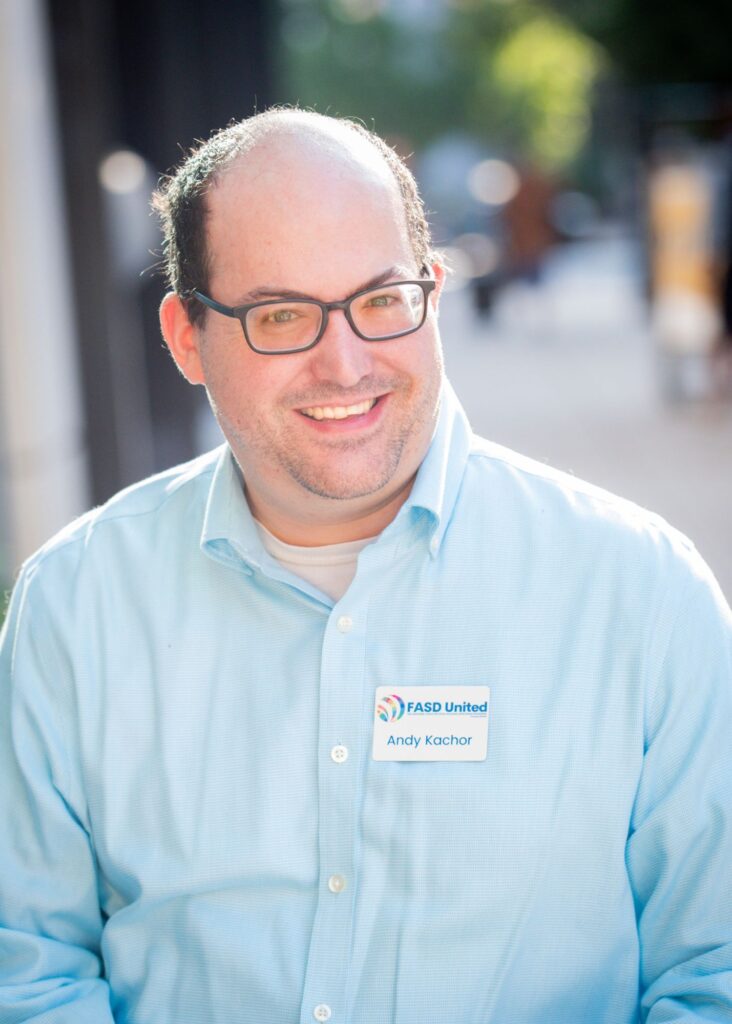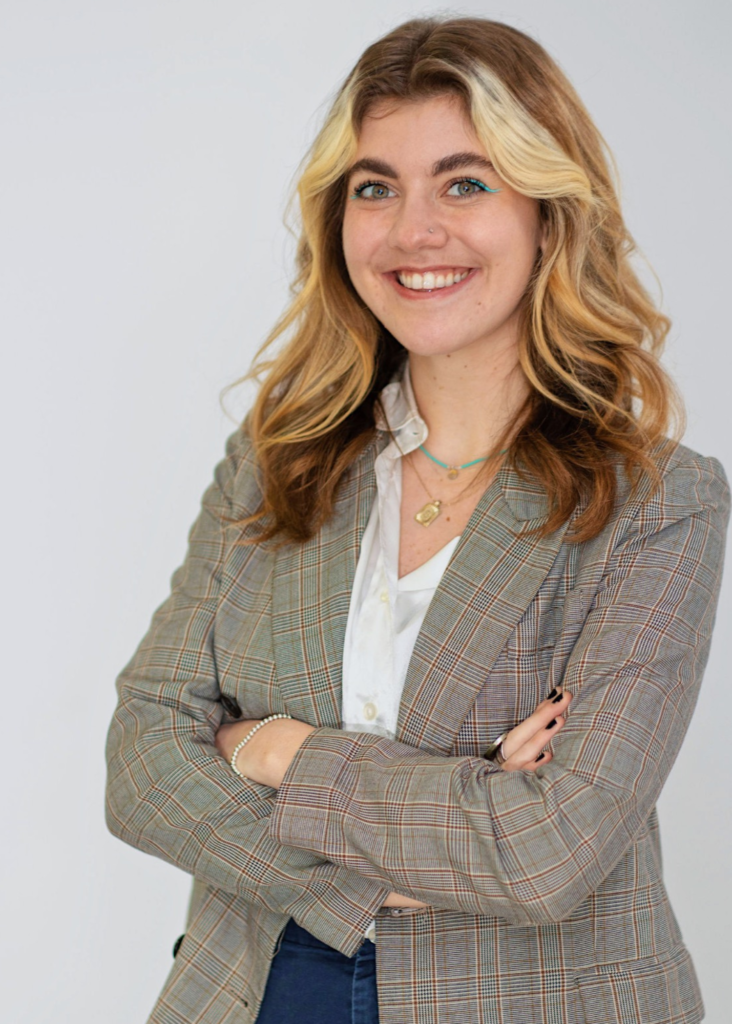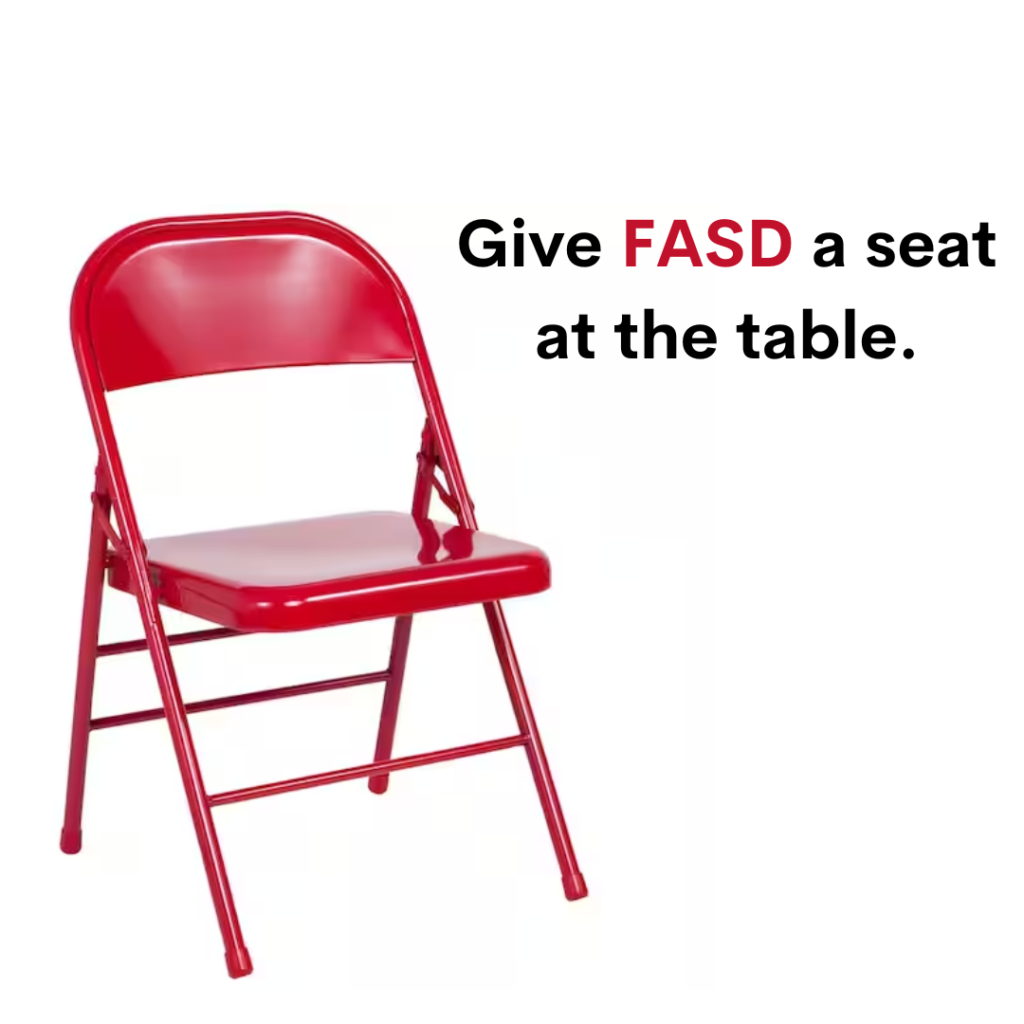Your cart is currently empty!
Glimpses of FASD
Are you an individual living with FASD? We would love to hear your story!
FASD United is filming an exciting new “video shorts” series featuring individuals living with FASD sharing their own stories in their own words.
Learn More:
What are these “Glimpses of FASD”?
They’re a great way for people to learn more about FASD and what it’s like to live with it, in just a few minutes. They’re also an opportunity for people to hear directly from people living with FASD and better understand and appreciate the living experience of FASD.
Why is FASD United doing this?
Our goal is to amplify the voices of individuals living with FASD (children and adults) and empower them to share their own stories and experiences in their own words.
FASD United works to support the advocacy work of individuals with FASD and to give them a platform to share their stories, as a way of fulfilling our mission to empower people living with FASD and prenatal substance exposure to educate the public.
FASD United is especially interested in highlighting the successes, strengths, and achievements of people with FASD, as well as challenges. In sharing these positive stories through a strengths-based lens, our goal is to counter the harmful effects of stigma and bias. The objective of these video shorts is to raise awareness of FASD, its impact and prevalence, with the goal of empowering the FASD community to be more recognized and supported throughout society so that FASD is given a seat at the table where decisions are made.
How will my video be used?
The purpose of these video shorts is to educate systems of care and the public on FASD. It is our hope that by sharing your story, FASD United will gain a valuable tool for getting policies enacted that will ultimately improve the quality of life for you and others living with FASD.
We want you to be in control of how you participate in these videos and to be an active decision-maker throughout the process.
With your permission, your video will:
- Become part of the FASD United Media & Communications Hub
- Be made available to the public on our website and through our social media channels
- Be used for academic and scientific research and data analysis
- Inform research into the experiences and perspectives of individuals living with FASD
Who can participate?
Anyone who lives with FASD or prenatal substance exposure is welcome to participate. You don’t need to have a formal diagnosis or any prior experience. We want to hear from everyone, from children to adolescents to adults.
To fully reflect the neurodiversity of the FASD community, we need to showcase stories across diverse backgrounds, geographies, ethnicities, and life experiences. Minors under age 18 are welcome to be included and must have parent or guardian permission.
Why should I share my story?
Everyone has their own unique life experience. We like to say, “If you’ve met one person with FASD, you have met ONE person with FASD.” The more stories we are able to share, the more effectively we’ll be able to show the public that the FASD community is diverse and full of so many incredible individuals.
The most common type of feedback we hear from people who have shared their personal stories with us in the past is that sharing their story helped them to feel empowered and seen, that it felt validating and encouraging to know that others are listening and responding to their stories.
Since this is your story and your life experience, the decision to share it is totally up to you. If you do decide that you’d like to share your story, we would love to hear from you!
Has FASD United made videos or shared stories before?
Yes! FASD United has used video and storytelling to feature the living experience of FASD for many years now.
FASD United (then NOFAS) launched a YouTube channel in 2010 with a wide variety of videos, including video interviews of individuals living with FASD, with people from across the FASD spectrum, including children, adolescents, and adults from diverse backgrounds.
In addition to video, FASD United has featured personal stories of individuals with FASD through our series of written articles and blog posts spotlighting interviews and profiles of people with FASD.
Who will be interviewing me?
Interviews will be conducted by the team of our Media & Communications Hub, Andy Kachor and Sophie Sissi.

Andy Kachor, FASD United Communications Director, has led FASD United media efforts since 2010. He produces and edits videos, including training videos and interviews with leading FASD researchers, scientists, community advocates, and family members of individuals living with FASD. Andy is the managing editor of the FASD United Weekly Roundup email newsletter. Andy has a background in video production, graphic design, and community media development.

Sophie Sissi, FASD United Media Director, the ever-globe-trotter, earned her Master’s in Human Rights Law from the Central European University in Vienna, Austria. There, she immersed herself in the essential work of crafting international laws to prevent violence against women. Her fervor for human rights carried her to the European Capital of Democracy in Vienna, where she explored human rights’ powerful role in nurturing a flourishing democracy in Europe.
Where can I view the published Glimpses of FASD?
The published short videos are available on our YouTube channel and can be accessed:
- First, fill out a simple form to select a date and time. [You do not need to book with both Andy and Sophie; choose one based on your schedule]
- Select a 15-minute block of time to record a video with our team. All filming will happen on Zoom. We’ll edit the final video to about 1-2 minutes.
- Once you book the meeting, a Zoom link will be automatically sent to you in a confirmation email, which can be added to your calendar. The interview questions and media release form will be included in the details of this email.
- You will receive email reminders about your meeting as it approaches.
- Please click here to sign our media release form.
- You will see the questions you’ll be asked when you book the meeting. Before the Zoom interview, please look over these questions so you know what to expect and can get a sense of what you would like to share. (Once you book your meeting, the interview questions will be emailed to you).
- Please refer to our Media Training Guide
- Check your computer’s settings for video, audio, and Zoom. For more detailed tips and guides for Zoom, click here.
- Once you join the recorded Zoom meeting, our team will greet you and explain the process.
- The meeting will be recorded, and you will have 15 minutes to respond to the questions and share your story and your experience of living with FASD.
- Since the videos will be edited, don’t worry about getting everything “perfect.” You are always welcome to say something again if you’d like to use different words or think of something else you’d like to add.
- Just let us know if you would like to see the video before it gets posted.
- Please let us know if you would be more comfortable having a support person (such as a close friend or family member) with you during the interview so that we may accommodate this. To keep the video’s focus on your experience and words, we ask that support people be off-camera and behind the scenes. Please email us with any questions.
More questions?
Please email Andy Kachor, Communications Director, or Casidee Gonzales, Media Director, with any questions at kachor@fasdunited.org & gonzales@fasdunited.org
Please let us know if you require any accommodations.

Our 2024 initiative aims to secure a presence for FASD in decision-making and discussion forums across various fields, including areas of study, professions, and societal sectors.
This project helps explore our mission through interviews with those with living experience. By collecting responses and analyzing themes, we can more accurately assess which tables FASD should be a part of and in what ways. In doing this, we hope to promote a more just, FASD-informed world.
Give FASD a seat at the table.
